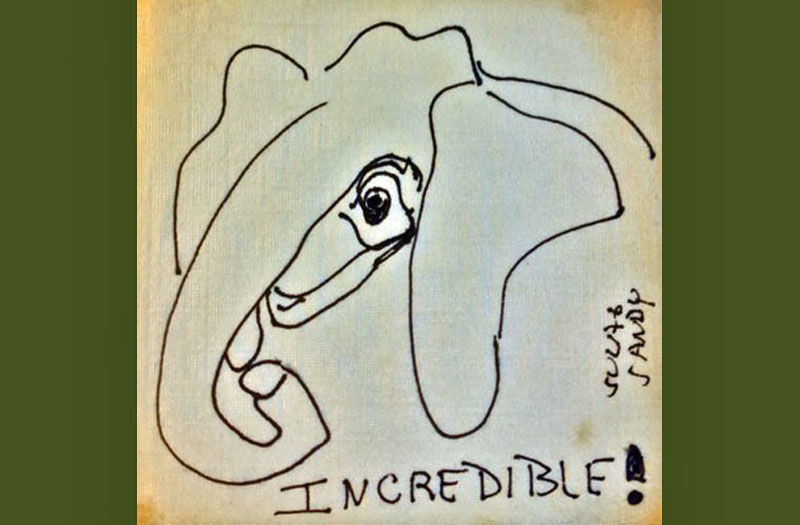“Alice laughed. ‘There’s no use trying,’ she said. ‘One can’t believe impossible things.’
I daresay you haven’t had much practice,’ said the Queen. ‘When I was your age, I always did it for half-an-hour a day. Why, sometimes I’ve believed as many as six impossible things before breakfast. There goes the shawl again!” Lewis Carroll, Alice in Wonderland
In his introduction to the original series This I Believe, Edward R. Murrow wrote:
This I Believe. By that name, we bring you a new series of radio broadcasts presenting the personal philosophies of thoughtful men and women in all walks of life. In this brief time each night, a banker or a butcher, a painter or a social worker, people of all kinds who need have nothing more in common than integrity—a real honesty—will talk out loud about the rules they live by, the things they have found to be the basic values in their lives.
We hardly need to be reminded that we are living in an age of confusion. A lot of us have traded in our beliefs for bitterness and cynicism, or for a heavy package of despair, or even a quivering portion of hysteria. Opinions can be picked up cheap in the marketplace, while such commodities as courage and fortitude and faith are in alarmingly short supply. Around us all—now high like a distant thunderhead, now close upon us with the wet choking intimacy of a London fog—there is an enveloping cloud of fear.
… “Never has the need for personal philosophies of this kind been so urgent.”
These same words are as true today as they were in the 1950s when Edward R. Murrow introduced the show. Later NPR picked up the idea and catalogued 125,000 essays that you can read online. Whether profound or not and regardless of your personal beliefs the essays are fascinating to read. [This I Believe Link}
Each essay is at a particular point in time and by a particular person. It’s important to note, as the author John Updike wrote in his essay, “A person believes various things at various times, even on the same day.” (Alice would concur.)
Think in the Morning blog consists of our own thoughts—stories (some real, some fictional), experiences, opinions and other such ramblings. In a sense this website is our extended essay of This I Believe.
We read several essays on the NPR site. It was time well spent.There is no shortage of “life advice” (consider Socrates “know thyself”and“the unexamined life is not worth living”or Montaigne “question everything”or Shakespeare’s Polonius speech “to thy own self be true”). What makes the NPR essays so enjoyable is that they represent the personal beliefs of many ordinary (and extraordinary) people. You need not agree or disagree, simply read and think and perhaps learn.
NPR suggests you write your own essay of this I believe and provides the following format:
Tell a story about you, be real
Be brief, 500-600 words
Name your belief in one sentence
Be positive not preachy
Be personal
We created these one-line summaries from some of the belief essays we read. We think it is interesting to note the diversity and variety of the essays.
You only have what you give
No matter what is beyond, there is this right now
I believe in humanity
I believe in grief
I believe in small acts of kindness
It’s the questions not the answers
Love is stronger than death
It’s okay to be the juice-box mom
You matter because you exist
Less is more
There are some things I will never know
Test the limits
I believe in bread made by hand
I believe in the power and mystery of naming things
I believe in the practice of slowing down
Do your best
We learn by failing
We are all leaders
Power of the mind
Learn to love yourself
It’s ok not to have an opinion
These are brief summary statements from only a few of the essays. The essays themselves are much more. There are thousands. As might be expected Think in the Morning has come up with several possible maxims of our own.
Find something you are passionate about and pursue it full steam ahead.
Be willing to admit when you are wrong. Be open and willing to change course.
Treat others with respect.
Life isn’t meant to be a bed of roses.
Spend less than you earn.
“Annual income twenty pounds, annual expenditure nineteen nineteen and six , result happiness.
Annual income twenty pounds, annual expenditure twenty pounds ought and six, result misery” Mr. McCawber, David Copperfield, Dickens
If we had to pick just one thought, it would be this one:
We’ve tried to live our life accordingly with some failures and some successes. We’ve seldom been disappointed. As usual, the exceptions prove the rule. Our blog about this belief can be found HERE

